#audio flashcards
Explore tagged Tumblr posts
Text
audio study methods
Still working on that 'lazy' study plan post, since I am just not satisfied with any chinese grammar guide summaries online enough to recommend them as a small grammar intro. If anyone knows of any good 'grammar overview summary' articles or sites for chinese grammar, please let me know. (I like AllSetLearning's Chinese Grammar Wiki but it is huge and in depth and not something I'd recommend a learner 'just read through' on month 4 of learning, and the grammar guide summary site I used as a beginner that was very easy to read through in a few hours... no longer exists)
So in the meantime. Not a grammar study tip, but a general 'lazy' option for language learners who (like me) can't focus on stuff like anki, or just don't want to. I go more in depth about using audio lessons and audio flashcards on other posts, and on the lazy study plan post i'm drafting, but the short of it is: you can listen and learn while doing your normal daily activities. That's what makes the study method so convenient. You don't have to squeeze in any extra time, or change your daily life schedule to make time for chinese, to use audio lessons and audio flashcards.
You simply find some times during the day when you'd either normally listen to audio in the background (like if you listen to music when commuting or shopping, or if you listen to podcasts when working, or if you listen to youtube while exercising or browsing social media). As usual, the more time the better as you'll make faster progress if you study 1-2 hours a day or more. But anything is better than nothing. So lets say you commute to work 30 minutes in morning and evening, there's your hour of studying audio. Or you go for a walk at lunch for 15 minutes, and browse tumblr for an hour scrolling (that's 1 hour and 15 minutes of study). It's very easy to fit 30 minutes of audio study into a day, and it's fairly easy to fit even 2-4 hours of audio study if you're so inclined. I usually do 30 minutes - 2 hours of audio study some days, since when I walk I decide if I feel like listening to a youtube essay or chinese or japanese stuff, when driving I decide which I feel like listening to, and I want to listen to something in english 2/3 of the time.
How do you use audio study material? Well, the easy way is you just press play on it, let it play in the background while you do other stuff, and that's it. If you tend to avoid studying new stuff (like me), then I recommend PRIORITIZING listening to NEW AUDIO every time, until you get into the habit of listening to NEW stuff to learn. Then you can re-listen to stuff sometimes, as review, especially when you're doing activities you have less attention on audio during. So for example: you'd listen to new audio on the commute or when walking (when you can mostly focus on what you're hearing), and then re-listen to audio as review while working or scrolling tumblr and reading english (activities where you pay more attention to other things besides audio).
What can you listen to?
There's audio lessons - which would be something like ChinesePod101 (Immersive Language Chinese in the Hoopla library app), Coffee Break Chinese, youtube videos where teachers talk in english and explain chinese as they teach it. These are good for study material, because you comprehend what you're learning due to the english explanations of every word and grammar point you hear. These are good for beginners, because you will understand everything you're listening to, and learn new words and grammar, thanks to the explanations. The drawback with audio lessons is they require the most focus.
There's learner podcasts like TeaTime Chinese and Slow Chinese, these are more often ENTIRELY in chinese. So these are better for practicing comprehension of stuff you've studied elsewhere, rather than for learning new things. You can learn new words and grammar from these, but if that is your goal then re-listen to learner podcasts a decent amount (5-20 times or more until you can't guess/figure out any more word meanings).
There's audio flashcards (which I love). These are sentence audio in english, then repeated in chinese. The order may vary, the chinese may be repeated more than once. These are good for beginners and upward, because you get a translation of every single thing you hear in chinese. You can pick up new words and grammar from audio flashcards. Audio flashcards require less focus than audio lessons, because you can learn from sentences while you pay attention and then if your attention drifts you can just focus again to the next sentence you hear and continue learning. The drawback is there are no explanations for which word specifically translates to what, some translations are not literal, and there's no explanation of why the grammar is the way it is. Audio flashcards require the listener to try and guess what means what by exposure to chinese sentences and their translations. So it's harder than audio lessons in terms of explanations, but easier than learner podcasts. Audio flashcards are the best substitute for traditional flashcards or SRS apps like anki, if you're trying to improve your vocabulary by hundreds of words ASAP. Audio flashcards are dense with new vocabulary (usually 1 new word or grammar point per sentence you can learn), so you'll learn more words than you would with an audio lesson that is paced slower with more english explanations or a learner podcast which would ideally be mostly words you know and only 20% or less new words.
There's Spoonfed Chinese Anki audio files (which I recommend since these start out very basic and increase in difficulty while also repeating words a lot so you can review, they're shared on reddit if you search, or ask me), if you search 'chinese english sentences' on youtube or bilibili (i've done this with chinese japanese sentences on bilibili) you'll find videos like this where you hear audio english then audio chinese. Old glossika cd files are basically this structure as well, which you can find the audio files of for free online or free in libraries (I'm using the new glossika app for japanese but I'm hesitant to recommend the modern app courses as there's significant errors in japanese so I'm not sure how good/bad the chinese one is). If you're a beginner, then the audio flashcard material you pick won't matter much as you need to learn a few thousand common words first which will be in most materials you find. But if you're an upper beginner, you may wish to prioritize finding audio flashcards with MORE unique words, more sentences, or may want to transition to using learner podcasts more for new vocabulary. If you aren't running into at least one new word for every 5 sentences you hear in audio flashcards (and ideally one new word for Every sentence), then that audio flashcard is way too easy for you and you know enough words to move onto new study material.
Audiobooks and audio dramas - use these like learner podcasts, listen to ones you can comprehend the main idea of, and then re-listen until you can't guess/figure out any more new words. If you're not very good at listening comprehension (like me lol), then you may want to listen to a given audiobook/audio drama file 3-5 times before deciding if you can comprehend the main idea (and use the material). When my listening skills are rusty, or just in general since my listening skills are bad, it can take me a few times of listening to recognize words I 'already know' and then a few more times of listening for my brain to put the words i recognize together into 'comprehending' what was communicated. So if you can read better than you can listen, you may want to listen 3-5+ times to a new audio file before deciding if you can follow the main idea or if it's too hard. And if you can READ the audio drama transcript, chapter text, but cannot understand the audio file? Then it probably IS at a good level for you to listen to, you just need a lot more practice hearing and recognizing the words you can read. So re-listen.
All of these listening study methods are good for:
Adding more study time into your day, since you can do them while doing other things.
Learning new words and grammar, when you don't have the time (or don't want) to spend time dedicated mainly to focusing on your study material.
Learning new words and grammar, if you don't use flashcards or SRS like anki but want the benefit of learning lots 'faster' than you would if you only picked up words during active study time (active study time being when you ONLY are focusing on study activities: like reading chinese, watching cdramas, chatting/texting people, and looking up words)
#audio flashcards#study method#study methods#audio lessons#audio drama#audiobook#chinese studyblr#chinese langblr#rant#i am my own guinea pig for testing how well these study methods work#and i can say personally? audio flashcards work SO fast for me and so much better than anki (anki is great but i cant focus on it)#and audio study methods in general work for me even when i'm doing other stuff at the same time. making it the easiest#for me to reliably do on a daily basis. since theres almost always Time to do listening#my chinese listening comprehension has increased a lot just in the last MONTH of listening to so much audio#as has my japanese surprisingly.#despite glossika japanese app course being 20% messed up. i'm noticing i can follow the main idea of like#Final Fantasy X audio and Death Note audio now#which is fucking wild to me
10 notes
·
View notes
Text
rewatching ben whishaw's richard ii and yea i think the biggest difference between his and the rsc version is that he plays richard's flippancy/disregard for other people's lives completely straight and in a kind of sinister way while david plays it for humor
#shoutout to the scene with dt's richard and gaunt because it's so FUCKING funny dwhgjkflkjwjlw#it's like that one twelve scene in dw where he's reading clara's flashcards for social interaction#and he's like 'uh i'm sorry for the death of your friend slash family member slash pet'. Same energy#ricky 2#ws#in terms of 'what's more fun for me to watch' i like david better but both are v good ways to play the character imo#one emphasizes the dislikability and the other emphasizes the hubris#although i don't think playing richard's character for humor would work as well without an audience to bounce it off of#one of the weakest parts of david's 2009 film hamlet is that (now that i've listened to an audio clip of the stage recording)#the hamlet w rosencrantz/guildenstern bit in act 2 scene 2 is filled with too much dead air where the live audience would normally laugh#and like hamlet Is meant to be more Funny as a play in a way richard ii is not so it's not like. dealbreaking or anything#but i am so grateful that the rsc richard ii is a stage recording rather than. made for tv bc i can imagine a world#where tv dt richard ii would have a bunch of scenes like the hamlet/ros/guil scene where it would drag more than it needed to#so like while i do slightly prefer the rsc version both versions are ultimately best suited to their respective mediums#also rory kinnear plays henry a lot more human and sympathetic than nigel lindsay does#which means that while he is much much much more entertaining to watch#i do feel like the wider theme of the fragility and sheer ridiculousness of the monarchy as a concept comes thru better in the rsc version#as well as (perhaps accidentally..) satirizing the english nationalistic sentiment expressed by a bunch of the characters#but then again i don't think that's what hollow crown was shooting for they wanted to do a grounded drama and they did a grounded drama
8 notes
·
View notes
Text
I've been feeling increasingly burnt out with wanikani and bunpro over the last 2ish months and there's definitely non-language learning reasons why (part time job throwing off my routine was a big one) but I do kind of feel like I've hit a spot with both where the marginal returns on effort I put in are starting to diminish
like bunpro was outstanding for the first few months of futzing with it but lately it feels like a lot of the phrases they're discussing are either easy to interpret the meaning/usage of without thinking too hard, or express something in an odd way that's hard to imagine the use case of
and then with wanikani it's like, just a looooot of busywork. I doubt it's ever gonna be purely wasted effort but it's very time consuming and again, a lot of the kanji are specific enough that I haven't seen them or ones that I see all the time and know common words they're used in already
meanwhile the class I'm taking assigns a lot of homework, so I'm getting my basic mechanical practice in through there a couple days a week anyway (though admittedly it's at a much lower level). But, the class is an avenue for practice with listening and speaking, which are the skills I always feel have been lagging incredibly far behind dealing with text.
it doesn't feel like I'm hitting a wall per se, because I still think the whole pursuit is generally engaging, and going back to looking at cardcaptor after plugging away for a few months I can really feel a difference in comprehension. like to the point where it's possible to enjoy without getting so lost I have to stop and go look things up. it's just that with those services specifically I feel like I'm plateauing.
but on the other hand I guess if I feel this way about those sites, then maybe they've done their job for the moment and the play is to pivot to spending the time I'd be using on flashcards fumbling though native language media and remembering misskey exists, etc, until it feels like I'm back to being out of my depth and like I could use the boost again.
#the site I use for JA audio + subtitles anime also has integration with anki so I wonder if that's worth looking into#or if just throwing my fully functional adult brain at media for children is enough to improve skills without adding more flashcard overhea#satori reader is another thing that gets thrown around a lot that I should really check out#but I'm always unclear on what parts of that service are paid or not
11 notes
·
View notes
Text
Duolingo Sucks, Now What?: A Guide
Now that the quality of Duolingo has fallen (even more) due to AI and people are more willing to make the jump here are just some alternative apps and what languages they have:
"I just want an identical experience to DL"
Busuu (Languages: Spanish, Japanese, French, English, German, Dutch, Italian, Portuguese, Chinese, Polish, Turkish, Russian, Arabic, Korean)
"I want a good audio-based app"
Language Transfer (Languages: French, Swahili, Italian, Greek, German, Turkish, Arabic, Spanish, English for Spanish Speakers)
"I want a good audio-based app and money's no object"
Pimsleur (Literally so many languages)
Glossika (Also a lot of languages, but minority languages are free)
*anecdote: I borrowed my brother's Japanese Pimsleur CD as a kid and I still remember how to say the weather is nice over a decade later. You can find the CDs at libraries and "other" places I'm sure.
"I have a pretty neat library card"
Mango (Languages: So many and the endangered/Indigenous courses are free even if you don't have a library that has a partnership with Mango)
Transparent Language: (Languages: THE MOST! Also the one that has the widest variety of African languages! Perhaps the most diverse in ESL and learning a foreign language not in English)
"I want SRS flashcards and have an android"
AnkiDroid: (Theoretically all languages, pre-made decks can be found easily)
"I want SRS flashcards and I have an iphone"
AnkiApp: It's almost as good as AnkiDroid and free compared to the official Anki app for iphone
"I don't mind ads and just want to learn Korean"
lingory
"I want an app made for Mandarin that's BETTER than DL and has multiple languages to learn Mandarin in"
ChineseSkill (You can use their older version of the course for free)
"I don't like any of these apps you mentioned already, give me one more"
Bunpo: (Languages: Japanese, Spanish, French, German, Korean, and Mandarin)
#EDIT: Added a great resource for ESL and African languages that weren't found elsewhere#I do NOT recommend memrise and will talk about it another day but#langblr#duolingo#duo#language learning#language learning apps#mandarinblr#resource#reference
87K notes
·
View notes
Text
in case anyone is interested in hundreds, perhaps thousands, of dollars worth of korean language learning textbooks and more
download them now bc ill be deleting them off my drive soon
#i think i have flashcards and some simple novels in there#lots of audio and workbooks#lemme know if it doesnt let you dl and ill fix it :9
1 note
·
View note
Text
In light of Duolingo laying off its translators, here are my favourite language apps (primarily for Mandarin Chinese, Japanese, and te reo Māori).
Multiple Languages
Anki is a flashcard programme and app that's not exclusively for languages. While making your own decks is ideal, you can also download shared decks for most languages.
If you're learning Japanese, specifically, Seth Clydesdale has websites for practicing alongside Genki's 2nd or 3rd editions, and he also provides his own shared Anki decks for Genki.
And if you're learning te reo Māori, specifically, here's a guide on how to make your own deck.
TOFU Learn is an app for learning vocabulary that's very similar to Anki. However, it has particularly excellent shared decks for East Asian languages. I've used it extensively for practicing 汉字. Additionally, if you're learning te reo Māori, there's a shared deck of vocabulary from Māori Made Easy!
Mandarin Chinese
Hello Chinese is a fantastic app for people at the HSK 1-4 levels. While there's a paid version, the only thing paying unlocks is access to podcast lessons, which imo are not really necessary. Without paying you still have access to all the gamified lessons which are laid out much like Duolingo's lessons. However, unlike Duolingo, Hello Chinese actually teaches grammar directly, properly teaches 汉字, and includes native audio practice.
Japanese
Renshuu is a website and app for learning and practicing Japanese. The vast majority of its content is available for free. There's also a Discord community where you can practice alongside others.
Kanji Dojo is a free and open source app for learning and practicing the stroke order of kanji. You can learn progressively by JLPT level or by Japanese grades. There's also the option to learn and practice kana stroke order as well.
12K notes
·
View notes
Text
Free or Cheap General Language Resources Because idk I Just Wanna Help
All resources either have a free tier or have a low ($10 USD/month or less) subscription fee or a one time purchase option below $100 USD. All prices I give are in USD because I live in the US and this list was already hard to put together okay I'm not also doing conversions
Find language specific lists here.
I have given the links in text format because tumblr has a link limit. Copy and paste into your browser to look at them.
These are generalized. Not for your specific language.
LinQ, a website for reading: https://www.lingq.com/en/
You can click on words you don't know and get a definition and save a flashcard. They provide readings for all levels from beginner to advanced and you can upload your own texts and podcast or video transcripts and there's stuff uploaded by other users to browse through. The website also has some texts with audio included. You can also purchase books through the website. This is all included in the free tier. The paid tier allows you to save an unlimited number of flashcards and includes some forum and tutoring options. It's either $15 a month or $120 for a full year.
Languages available in full: Arabic, Simplified Chinese, Dutch, English, Esperanto, Finnish, French, German, Greek, Hebrew, Italian, Japanese, Korean, Latin, Norwegian, Polish, Portuguese, Romanian, Russian, Slovak, Spanish, Swedish, Ukrainian
Languages partially supported or with incomplete beginner courses: Afrikaans, Armenian, Belarusian, Bulgarian, Cantonese, Catalan, Traditional Chinese, Croatian, Czech, Danish, Georgian, Gujarati, Hindi, Hungarian, Icelandic, Indonesian, Irish, Khmer, Macedonian, Malay, Persian, Punjabi, Serbian, Slovenian, Swahili, Tagalog, Turkish, Vietnamese
Migaku, a web extension and app: https://migaku.com/
Paid service at $10 a month. It has beginner courses and allows for dual language subtitles on things like netflix or youtube. It also allows users to save flashcards from subtitles or articles and sync flashcards between devices
Supported languages: Cantonese, Mandarin, English, French, German, Japanese, Korean, Portuguese, Spanish, Vietnamese
Storylearning Books: https://storylearning.com/books
These are short story, dialogue, or history books by Olly Richards written for beginner to intermediate learners that in my experience at least are written to not be boring for adults. Each chapter of a book includes a key vocabulary list and comprehension questions. Storylearning also has online courses available but they're too expensive for what you get in my opinion. The books are way cheaper, though depending on the language you may have more or less books to buy. The books are usually in the $15-$20 range new but they're often available at used bookstores both online and irl for much cheaper.
Books available in: Spanish, French, Italian, Russian, Arabic (MSA), Brazillian Portuguese, Danish, Dutch, Icelandic, Korean, Norwegian, Swedish, Turkish, Irish
Mango Languages, a pretty standard language app: https://mangolanguages.com/
This is actually a pretty pricey one at like $20 a month but the reason I bring it up is that a lot of people can get it free through their local library and it has a large selection of languages.
Languages supported: Armenian, Azerbaijani, Egyptian Arabic, Iraqi Arabic, Levantine Arabic, Modern Standard Arabic (MSA), Bengali, Cantonese, chaldean Aramaic. Cherokee, Mandarin, Croatian, Czech, Danish, Dari, Dutch, Dzongkha, English, Tagalog, Finnish, French (European and Canadian), German, Greek (modern, ancient, and kione), Hatian Creole, Hawaiian, Hebrew (modern and biblical), Hindi, Hungarian, Icelandic, Igbo, Indonesian, Irish, Italian, Japanese, Javanese, Kazakh, Korean, Latin, Malay, Malayalam, Norwegian, Farsi, Polish, Potawatomi, Punjabi, Romanian, Russian, Scottish Gaelic, Serbian, Shanghainese, Slovak, Spanish (castillian and latin american), Swahili, Swedish, Tamil, Telugu, Thai, Turkish, Tuvan, Ukrainian, Urdu, Uzbek, Vietnamese, Yiddish
Comprehensible Input Wiki, a website for finding language specific comprehensible input resources: https://comprehensibleinputwiki.org/wiki/Main_Page
Comprehensible input is input in a language you understand the message of, not necessarily input you understand every word of. It's good for you to get a lot of it from day one. This website gathers resources like podcasts, kid's shows, youtube channels, books, etc. that are perfect for this sort of thing.
Languages currently on the website as I am writing this: American Sign Language, Arabic (MSA), Armenian, Basque, Biblical Greek, Biblical Hebrew, Bulgarian, Cantonese, Catalan, Chinese, Czech, Danish, Dutch, English, Esperanto, Estonian, Finnish, French, German, Greek, Haitian creole, Hakka, Hebrew, Hindi, Hungarian, Indonesian, Italian, Irish, Japanese, Korean, Latin, Lithuanian, Norwegian, Occitan, Polish, Portuguese, Russian, Romanian, Sanskrit, Sardinian, Serbo-Croatian, Sicilian, Slovak, Spanish, Swahili, Swedish, Tagalog, Thai, Toki Pona, Tunisian Arabic, Turkish, Ukranian, Vietnamese, Welsh, Yoruba, Zulu
Drops, a vocab app: https://languagedrops.com/
Drops teaches vocab through pictures and matching and spelling games, though you can also customize your settings to show translations and different alphabets or not. The free tier has ads and a daily time limit. The lifetime subscription is technically against my personal rule for this post because it's $160 but it often goes on sale for half off or $80. There's also a monthly or yearly payment option. At the paid tier you can practice for an unlimited time without ads and choose which types of vocabulary words you want to learn.
Supported Languages: Ainu, English (American and British), Arabic (MSA), Bosnian, Portuguese (Brazilian and European), Cantonese, Spanish, (Castilian and Mexican), Catalan, Croatian, Danish, Dutch, Esperanto, Estonian, Finnish, French, Galacian, German, Greek, Hawaiian, Hebrew, Hindi, Hungarian, Icelandic, Igbo, Indonesian, Irish, Italian, Japanese, Korean, Mandarin, Maori, Norwegian, Persian, Polish, Romanian, Russian, Samoan, Sanskrit for yoga, Serbian, Swahili, Swedish, Tagalog, Thai, Turkish, Ukrainian, Vietnamese, Yoruba
Anki, a general flashcard app: https://apps.ankiweb.net/
You can make your own flashcards on Anki or download flashcard packs that other users have made. It also allows for importing of audio and visual aids. It has a spaced repetition system that a lot of people swear by. Some companies like Refold also sell premade flashcard packs specifically for Anki. Free on desktop, I believe about a $20 one time purchase on iOS.
Muzzy In GondoLand (1986): https://archive.org/details/muzzy-in-gondoland-level-i-1986
No, really! The old Muzzy movies from the 80s made to teach kids foreign languages are fairly easy to find for free on archive.org or on youtube. The new Muzzy with workbooks and an app and whatnot requires a paid subscription to the BBC but the older ones are much easier to find. They're available in English, Spanish, French, Italian, German, Chinese, Korean, Esperanto, and Welsh.
Easy Languages, a connected group of Youtube channels: https://www.easy-languages.org/
Easy Language channels are channels where people interview speakers of the language on the street about everyday topics like dating, tourism, and shopping for example. They have dual language subtitles in their videos in the target language and English. Many of them also have series about useful phrases for beginners and intermediate podcasts. Most also have bonus worksheets and other learning materials on their patreons but the free content available is already a lot.
Current active channels: Arabic, Catalan, Czech, Dutch, English, French, German, Greek, Italian, Polish, Portuguese, Russian, Spanish, Turkish
wordreference.com
A website that lets you look up words in another language. It's better than google translate. It has pronunciation in multiple dialects and in depth explanations that some other websites don't have.
Supported Languages: Spanish, French, Italian, Portuguese, German, Dutch, Swedish, Icelandic, Russian, Polish, Romanian, Czech, Greek, Turkish, Chinese, Japanese, Korean, Arabic
edX, a website for taking college courses, often for free: https://www.edx.org/learn/language
I can't tell you precisely what's available because it changes year to year but they usually offer a wide variety of courses. You can also often get real college credit through these if that's something you're interested in. Programming languages are often mixed in with spoken or signed languages though so you may have to do some digging through the lists to fins what you want.
820 notes
·
View notes
Text
hmmm.... thoughts about composer!reader, whose pieces are always created for and featured in mr reca's films/projects.
people aren't sure when it first started, but in the release of one of his prior films was an ost. of course, it's not unusual to have music in such projects, but that one had felt... different, somehow — in the way its composition struck the chords of many, with billions across the cosmos instantly scouring for who made that piece.
it, of course, didn't take all that long when your name was featured in the credits. however there was barely any information aside from your name and credentials. (seriously, how could there not even be a single photo?!) no one knew what you looked like for quite a long time, only ever recognising your name and your music; even despite the numerous interviews, mr reca had never disclosed anything about you other than your talents. it came to a point where everyone believed they would never see your appearance.
well, until all hell broke loose during the annual intergalactic film awards, that is.
everyone already knew the drill — if mr reca had directed a film that year, it would undoubtedly win the adapted/original screenplay, cinematography, directing, production design, sound, music (original score and song), and film of the year awards, which also led to you winning both the music awards. usually, the composers would be the ones to collect said awards. however, the masses have become used to mr reca being the one to collect them on your behalf with thank you's also on your behalf.
that's how it's been ever since you made your mark in the universe, and so it really is understandable the uproar created by those in and out of attendance when the one who went collect the two awards wasn't the esteemed director, but a completely unfamiliar person; you.
you are definitely younger than they originally thought, having believed it must have been someone of a senior status of sorts to have consistently created such masterpieces. all eyes are trained on you as you step on stage and into the limelight for the first time, the light enhancing your features and formal attire when approaching the mic with a small flashcard in hand. your mouth opens, and the audience leans in with baited breaths as they await your first words.
...only for nothing to come out.
everyone watches a little dumbfounded as you try to talk once more but, aside from gaping like a fish, your efforts remain futile. it doesn't take long for you to clamp your mouth and eyes shut, even raising the awards in front of you in an attempt to shield your face from the crowd.
you... you were just really shy. or maybe a little...socially awkward, perhaps...? if this was the reason you never showed yourself, then they're beginning to understand why...
it passes in a blur — quite literally in that of brown. one moment you are alone on the stage, the next you have the presence of the renown director standing slightly in front of you, as though acting as a shield from the many prying eyes.
"apologies," he begins, his usual smile on display, "but my dearest composer has been suffering with a sore throat these past few days. on their behalf, we thank you all kindly for your support in our work."
and then he swiftly leaves with you tucked under and shielded by his coat, murmuring unreadable words to you as you both disappear backstage and leave everyone in a state of frenzy; to both those inside the ceremonial hall, and to those watching live elsewhere.
(it was only discovered after the awards ceremony concluded what the director had said to you, with the uploader being dubbed as a holy saint for their contributions to society. while the visual aspects of the video itself were not the clearest, barely anyone had it within themselves to complain when the audio was clear as crystal:
"and here i thought you were going to be brave and face your stage fright after all that pep-talk you gave yourself on the way here."
"i'm sorry... i really thought i could do it this time..."
"now, now, i'm merely teasing. you made a big step just making an appearance here today. i know how much courage this took for you, and i'm proud of you for facing it."
"really...?"
"but of course. i'm always proud of you, [name]. there is not a moment where i haven't been.")
(it also was not long until the cosmos was taken by storm when various pictures snapped during the awards ceremony spread. the millions of candids featuring you were one of the most liked and shared, with the top spot joined by the sequence of pictures taken of mr reca's soft expression when watching you onstage, into his realisation of your predicament, into him running onstage and shielding you from the cameras when making your way backstage.)
(...the drastic influx of fan accounts dedicated to both you alone and to you and reca should really be a studied phenomenon.)
#sophie talks : concepts <3#also reader plays the paino for reca when coming up with original scores and songs while he merely gazes with sickeningly soft and#lovestricken eyes while adding his own thoughts to the composition and sometimes playing alongside you and i think thats very very sweet#but um... this was supposed to be a one or two paragraph brainrot 🧍♀️and now its a fic 🧍♀️ why does this always happen 🧍♀️#man... smth has happened to me since mr reca became real... the brain has been rewired.... ohjg#okay but anyWAY composer!reader x mr reca would be such a cute concept and i have many many thoughts on their bg and dynamic ;w;#mr reca x reader#honkai star rail x reader#hsr x reader#mr reca x you#honkai star rail x you#hsr x you
1K notes
·
View notes
Text
How to Actually Learn a Language (Without Wasting Time)
Polyglots will do anything to sell you something, so here’s the fastest and most basic technique based on my research.
—
Step 1 – Getting the Absolute Basics In
This is where most people already get lost. If you search social media for how to start, the advice isn’t necessarily bad, but it often makes you dependent on a single resource, usually an app that will eventually try to charge you. Duolingo, for example, has turned into a mega-corporation that perfected gamification to keep you on the app.
Remember: free apps make money by keeping you on their platform, not by helping you become fluent.
At this stage, the goal is not to gain conversational skills but to avoid overwhelming yourself and get a feel for what you’re actually getting into. All my recommended resources are free because I believe learning a language should be a basic right. I wouldn’t advise spending any money until you’re sure you’ll stick with it. Otherwise, it can turn into a toxic “but I paid for this, so I have to keep going” mindset that drains all the fun out of learning.
• Language Transfer – Highly recommended for Spanish, Arabic, Turkish, German, Greek, Italian, Swahili, and French.
• Textbooks – Simply search for [language] textbook PDF, or check LibGen and the Internet Archive. Don’t overthink which book to choose—it doesn’t matter much.
• Podcasts – Coffee Break is a solid choice for many languages.
• YouTube Channels – Join r/Learn[language] on Reddit and find recommendations.
—
Step 2 – The 20/80 Principle
The idea is that 20% of words make up 80% of everyday speech.
What you’re going to do:
Search “Most common words [language] PDF”.
This list is now your best friend
For flashcards, I highly recommend AnkiPro. It lets you import pre-made lists for Anki/Quizlet and has an archive where you’ll definitely find the most common words. But it lacks audio. The real Anki program has it, but only on PC (unless you’re willing to pay $30 for the mobile app). Use AnkiPro for now—we’ll come back to repeating phrases later. In the meantime, find a YouTube video with the most common words pronounced, or use Google Translate for audio.
(Knowt is a free alternative for Quizlet if you prefer that)
These lists will spare you from learning unnecessary vocabulary at this stage. Spaced repetition (which Anki uses) can take longer, but it’s worth it because you want these words to stick. Anki will only introduce a small number of new words per day. Once you start new words, write phrases using them. Doesn’t matter if they’re random just try to use them.
—
Step 3 – The First Breakup With the Language
This isn’t really a step, but I have to mention it. For me (and for other language learners I’ve talked to) this is where motivation crashes.
The dopamine rush is over. Your ego boost is gone. You’re stuck understanding just enough to notice how much you don’t understand, and topics are getting more complex. Everything feels overwhelming, and motivation drops.
This is normal. You have to push through it.
I’ll write a separate post on how I manage this phase, but for now:
• Take a step back and make sure you understand the basics.
• Find something that keeps you motivated.
• Consistency is key. Even if it’s just five minutes a day, do it. (Edit: You can search online for inspiration on scheduled plans. I found one that organizes language exercises into different categories based on how much time you have each day, which seems helpful. https://www.reddit.com/r/languagelearning/s/sSGUtORurM
Personally, I used AI to create a weekly plan kind of as a last resort before giving up on the language, but try looking for pre-made ones first.)
I personally enjoyed story learning during this phase. And don’t forget the frequency lists are still your best friend. For story learning check out Olly Richards books!
—
Step 4 – Immersion
Your brain needs active and passive immersion. The earlier steps were mostly active, and now you’ll start the fun part.
How to Immerse Yourself:
1. Join some kind of community.
• I enjoy Reddit/ r/lean[Language]. Do this in your target language, but also in the language you already speak. Post that you’re looking for a chat partner in your target language. The most people are nice, and the mean ones will just ghost you anyway.
2. Watch shows.
• Subtitles only in your target language or drop English subtitles ASAP.
3. Listen to podcasts.
4. Read
I personally dislike media made for kids (except on low-energy days). For real immersion, pick something for adults.
5. Translate, write, and speak.
Before this, you wrote simple sentences using vocabulary. Now, put them to work:
• Translate texts.
• Keep a diary.
• Write short stories.
• Complain about the language in the language.
It doesn’t matter, just use it.
—
Step 5 – Speaking
Start speaking earlier than you think you’re ready. Trust me. This is probably where most people disagree with me. I do think you should start by focusing on input, but the importance of output isn’t talked about enough.
Now, the real Anki (or any program with phrases + audio) comes into play. At lower levels, it doesn’t make sense to just start talking, since you wouldn’t even be able to recognize your mistakes. Here’s what you’ll do:
1. Repeat phrases out loud.
2. Record yourself speaking.
3. Compare your recording to the original audio and adjust your pronunciation.
If it’s a tonal language (or if you struggle with accents), start this even earlier.
Other Speaking Strategies:
• Shadowing – Repeat after native speakers.
• Reading aloud – Your own texts, books, anything.
• Talking to yourself.
• Talking to natives (if you’re brave).
I’m not here to fix social anxiety, but I am here to help with language learning, so just speak.
—
Final Thoughts
• These steps overlap, and that’s fine.
• This is supposed to be fun. Learning just because you’re “too deep in” or because of school won’t cut it.
• If you’re lost, take a step back.
• I’m not a professional. I just think a straight answer is way too hard to find.
—
If you have anything to add, feel free to share.
#esperanto#linguistics#language nerd#polyglot#langblr#foreign languages#languages#language learning#chinese#french#language#learnlanguages#learn english#learnesperanto#learning#learn japanese#learnandgrow#learn french#learnnewskills#i dont know what to write
263 notes
·
View notes
Text
141 have to infiltrate a gala in the states (just go with it for a sec) but they go in as workers instead of guests
weeks before the event they’ll send in their resumes to the hotel hosting it, each in a different job that they picked, thinking that they can just skirt by their duties until the gala but they get paired with trainers who actually give a shit about their jobs.
Price picked his position just based on the title. hey, he is a captain so assistant banquet captain shouldn’t be so hard, right? wrong. it’s more paperwork than he’s ever seen in his life, actually. he accidentally ordered 1,000 bottles of wine instead of 100. love don’t get mad at him, how was he supposed to know that a unit of wine contained 6 bottles in each crate? don’t worry love, he’ll fix it. and now you’re stressed because you have to justify to the financial department why you have so much white wine and nowhere to store it when it got delivered.
Gaz fancied himself a nice cook on base so guess who’s the next sous chef at your station? you’re right, it’s him. you were told that an experienced chef was coming to finally help out in the little hotel kitchen but it became a disaster. he left sauces on higher temperatures than needed, burnt a whole chicken, and darling could you show him how to mince garlic again please? is this guy just really charismatic and flirting with you or is he just bad at his job? at this point, you’ll take what you can get. he’s not the worst but he’s got room to grow.
Ghost chooses to be a bartender just so that he has a vantage point while he’s stationed at the edge of the room. the only thing is that he still has his medical mask on, he says he’s a germaphobe (you don’t buy it for a second) and he still refuses to take it off. whatever everyone’s got their quirks but dove, what the fuck is a sex on the beach? what do you mean this is an open bar, thought you only serve beer and wine? he goes home with your flashcard set of all the basic cocktails and now he has a few weeks to know the difference between a manhattan and a screwdriver.
Johnny chose to be an A/V technician, it’s no brainer. all he’s gotta do is set up some lights, some projectors, whatever. it’s manual based so he doesn’t care. until his trainer tells him to go set up the tech table to actually run the lights & projector. bonnie, why are there so many cables? what are these for? they’re for the projectors dummy, what happened to your 6 years in audio/visual experience? guess you gotta take over now before he accidentally overpowers an outlet or trips the breaker to the whole hotel.
*bonus*
all the trainers are actually friends so when they get together for their weekly dinner, they start putting the pieces together. four separate men are hired with glowing reviews but are miraculously doing terrible at their jobs. there’s gotta be something else going on cause there’s no way that their tough as nails hiring manager would have hired all of them on the spot of their first interviews.
(he would if he was bribed by the military to keep quiet)
#john price#john price x reader#john soap mactavish#kyle gaz garrick#simon ghost riley#simon riley x reader#task force 141#kyle gaz garrick x reader#john soap mctavish x reader#cod#cod x reader
372 notes
·
View notes
Text

These are the apps and links I currently have on my phone to study Chinese:
SuperChinese: my main study resource. There are currently 7 levels, level 7 (still incomplete, they are still slowly adding lessons to it) being HSK 5 stuff. Each lesson has vocabulary, grammar and a short dialogue where those are used in context (I love context). It has a few free lessons in the lower levels but after that you have to buy a subscription. There are many sales though. When I was a beginner I used HelloChinese instead, which has more free content, and switched to SuperChinese when I finished all the free content there. It also has social network features and chat rooms I don't use.
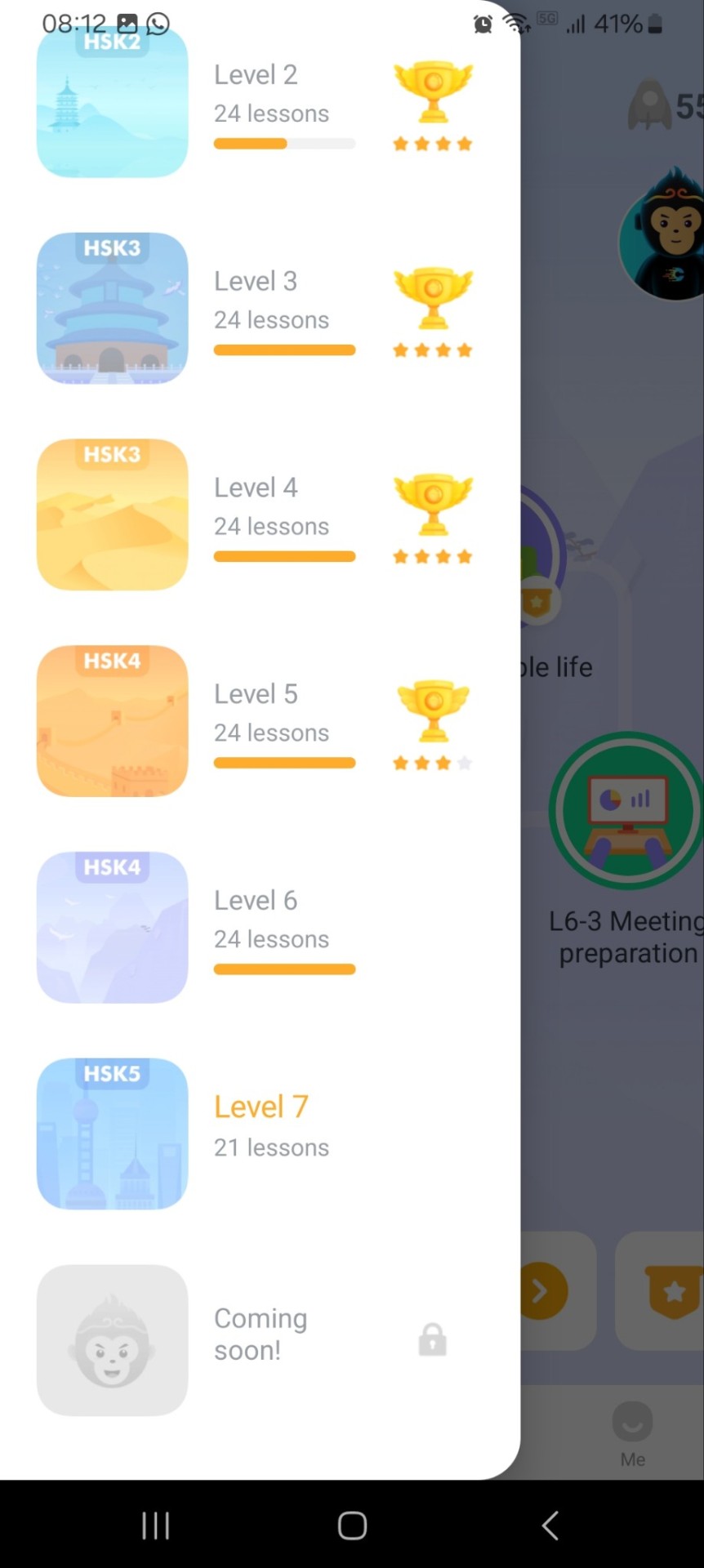
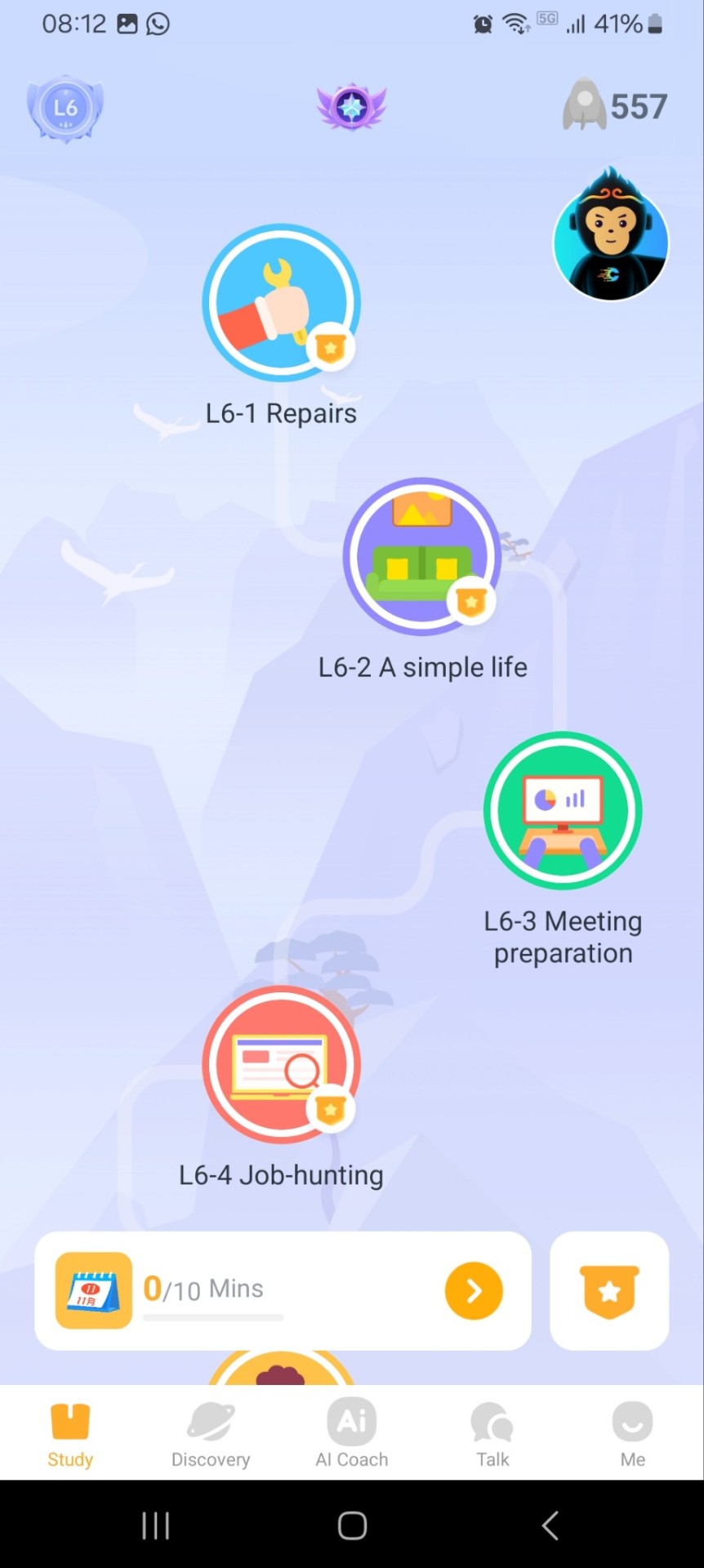
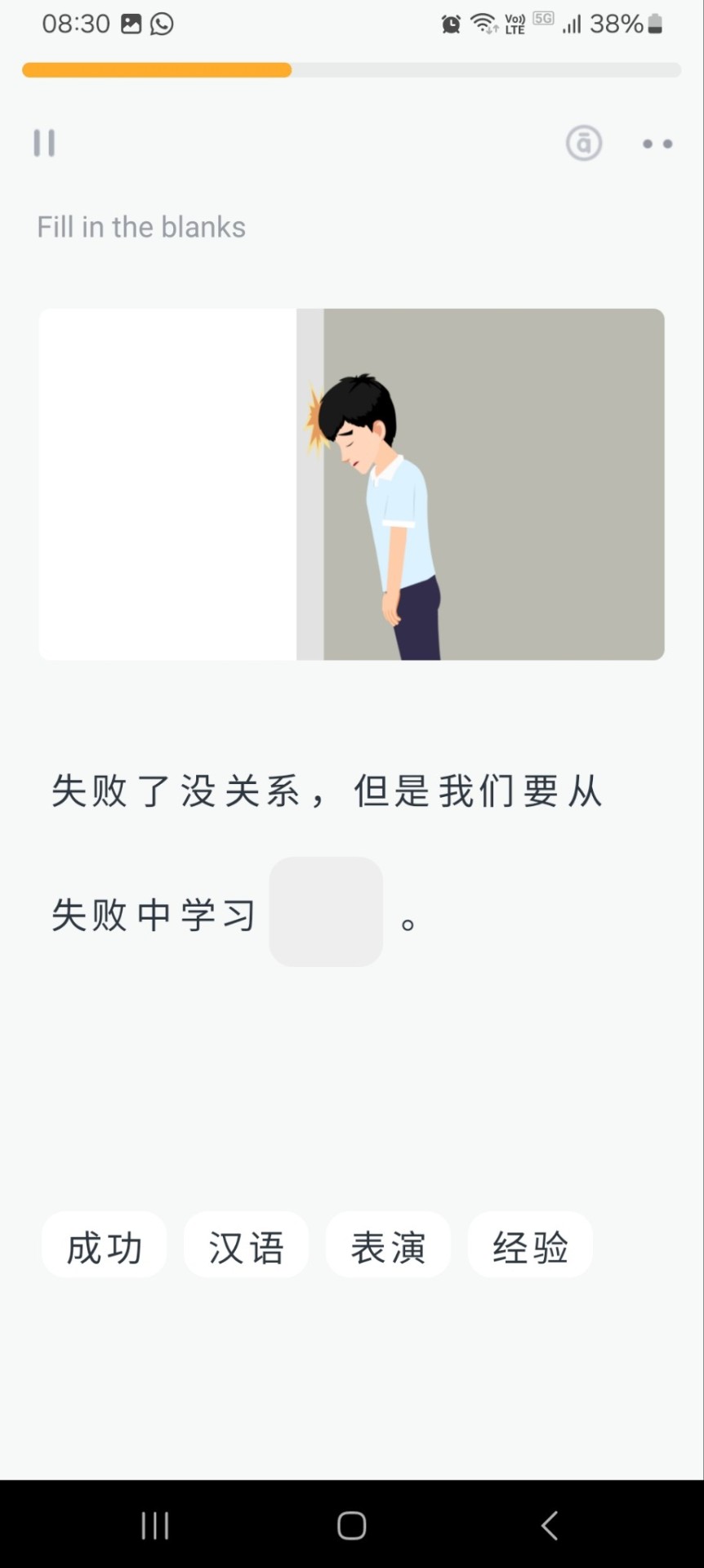
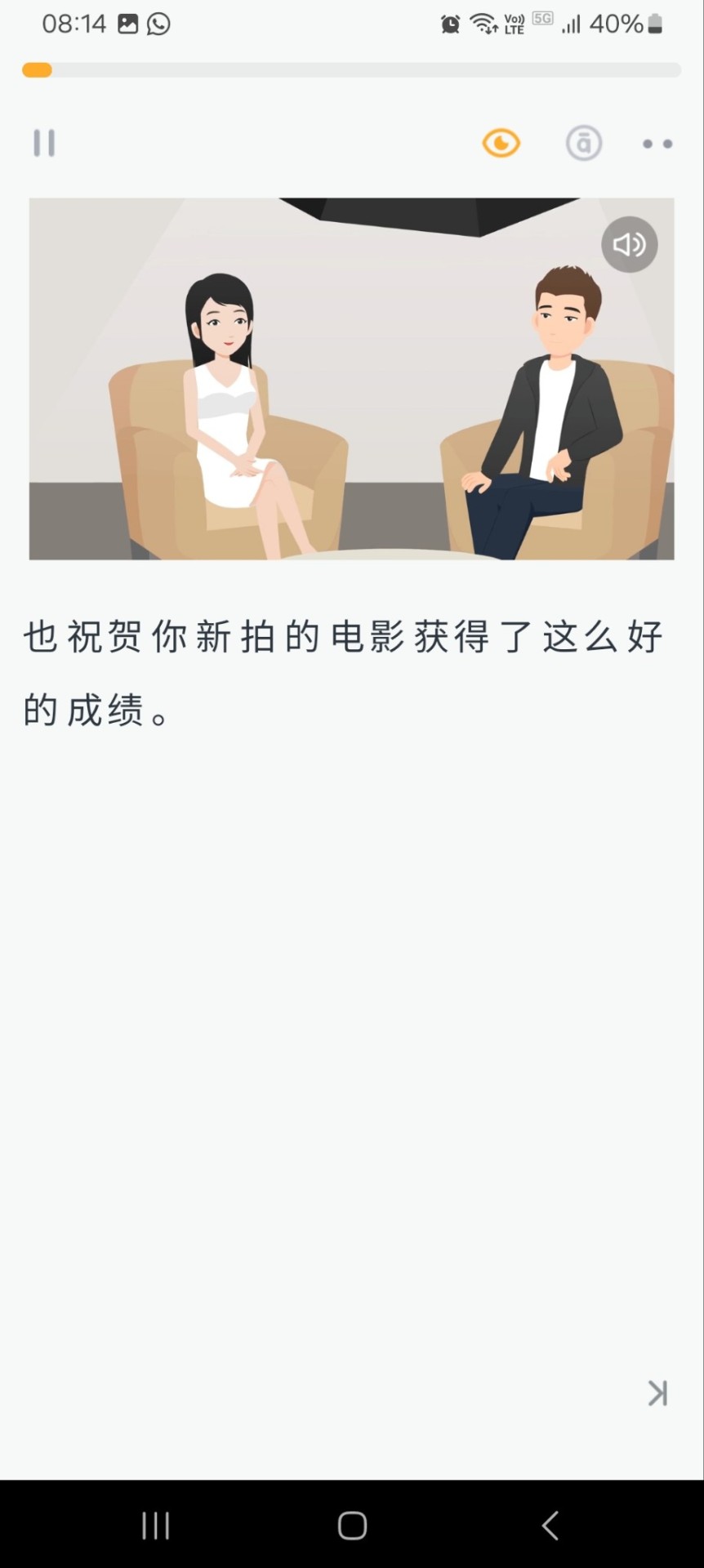
TofuLearn is like a flashcard app with many pre-made decks (you can also create your own on their website and import decks from Anki) and the option to practice writing hanzi. Anki didn't work for me, but I find Tofu very helpful. Practicing writing helps me with character recognition, and it also helps me remember the tones thanks to the audio in the pre-made HSK decks.
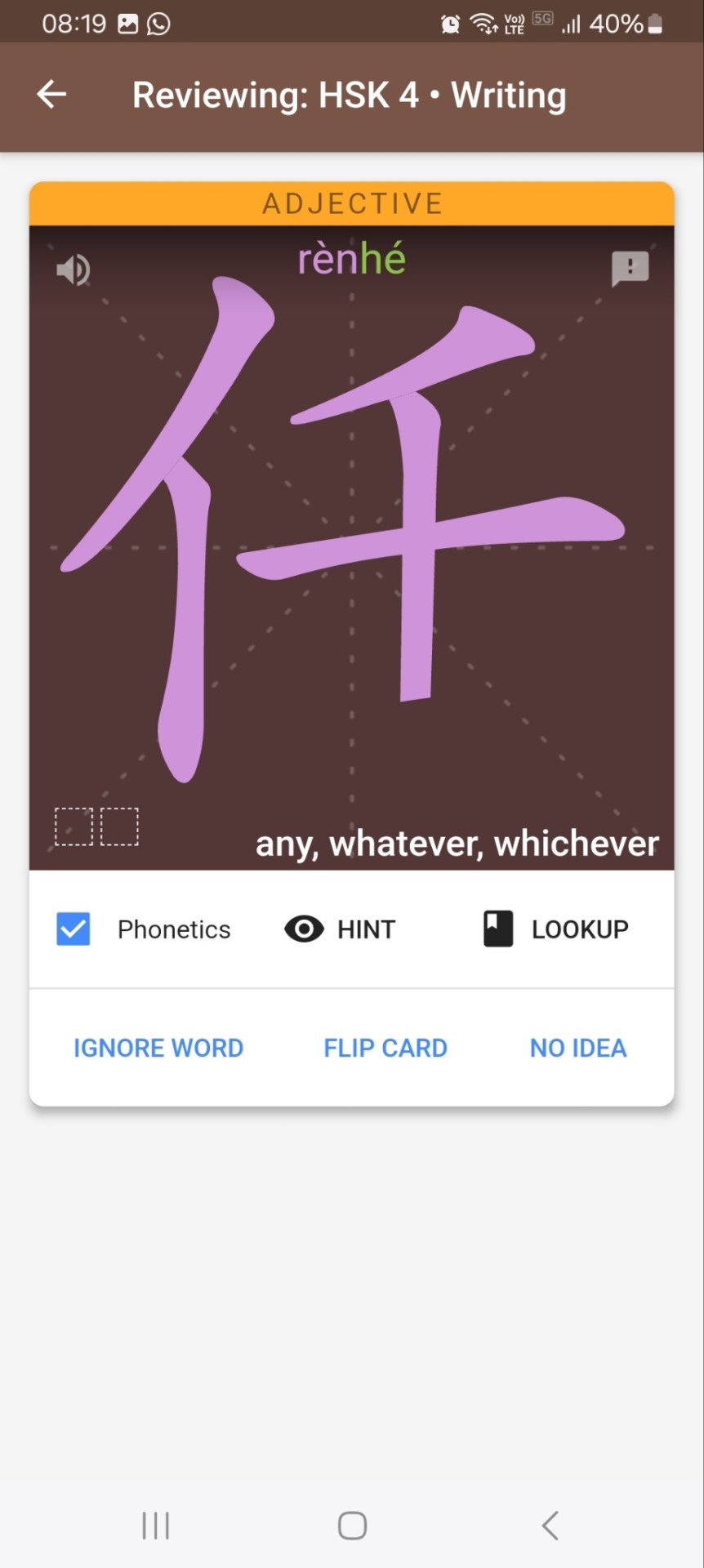
Dot is a reading app with new texts being added every day. It used to be completely free, which actually seemed too good to be true, and then they put practically everything behind a paywall and very strict limits for free users. After a couple of months they made it a little less restricted though - we still can't choose the articles but we can read as many as we want as long as we do the vocabulary exercises after each article (plus, during the Spring Festival, they made all articles available for free for 3 days and we could save the ones we were interested in to read later). It follows the new, not-yet-implemented (and harder) HSK levels, so you should start one or two levels below yours and if the texts are too easy move up.
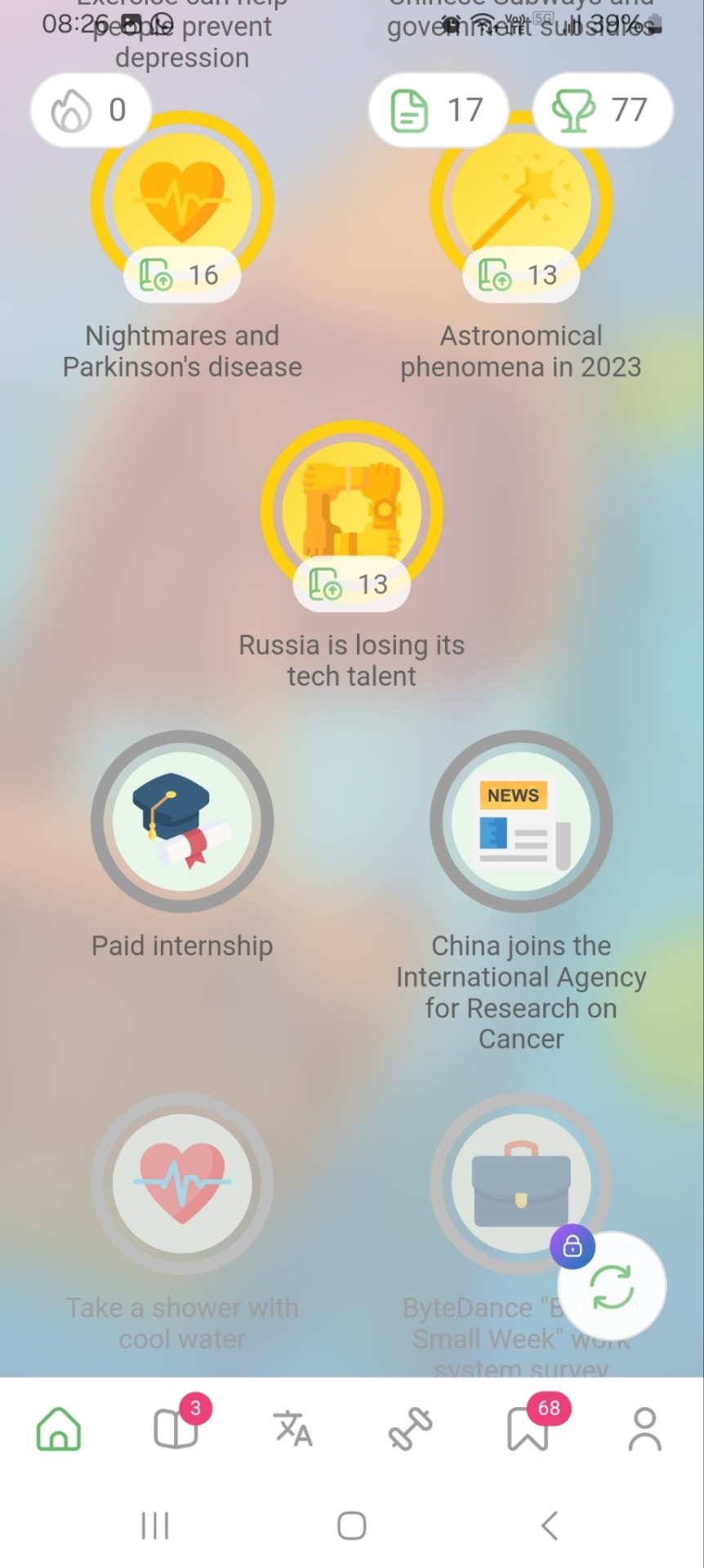
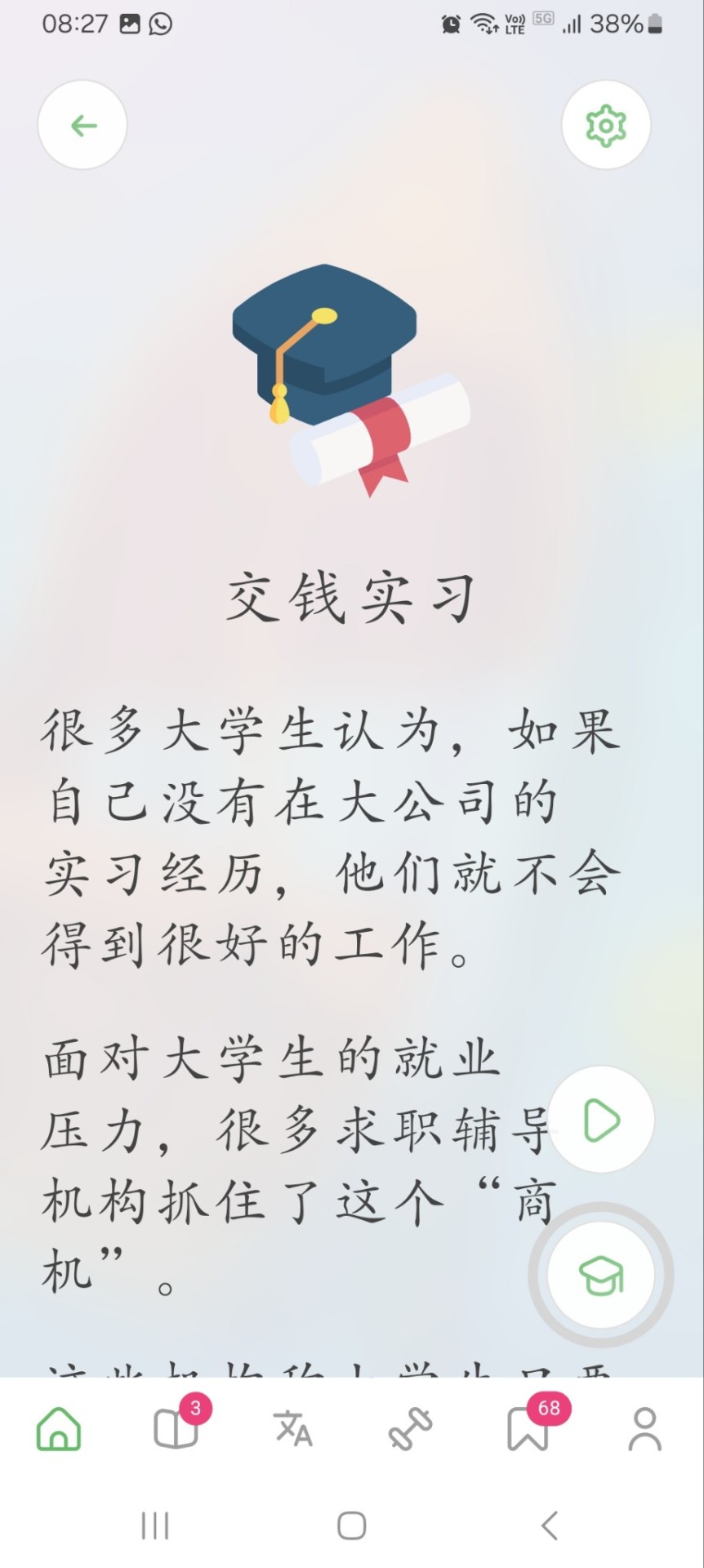
Google Translator: not the best but helpful when I need to translate whole sentences, plus I can point my camera or open an image and it translates writing.
Pleco: best Chinese to English dictionary.
Stroke Order: not an app but a website, does what it says in the tin: shows stroke order for a specific character.
YouGlish: also a website, you can put a word or phrase and it shows videos where people say that word/phrase. Very cool.
Todaii is a graded news app that has only two levels: easy and hard. I'm around level HSK4 and the "easy" level is quite hard though (but I admit reading is my nemesis).
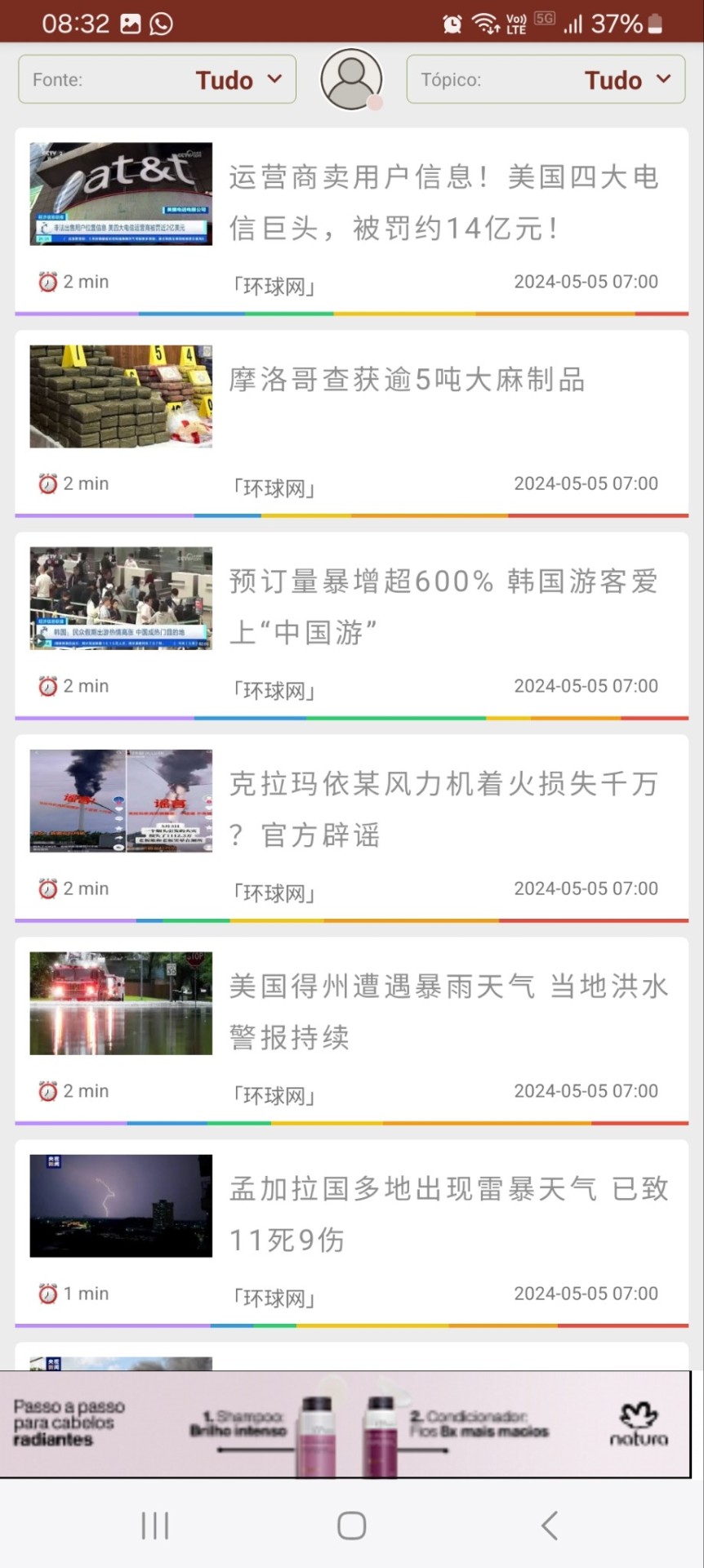
I also use YouTube and Spotify a lot.
#personal#resources#langblr#language learning#learning chinese#chinese langblr#chinese language#mandarin#中文
605 notes
·
View notes
Text
Okay there are some poor fucking translations in modern Glossika japanese :c
Look. The old version, the old cd audio lessons, had less words and their language was more artificial learner textbook format (like Genki). But there was less errors.
At least 20% (one in 5) sentences has a translation that's partly or wholly wrong. Its a good thing Im not a true beginner, and can tell. Stuff that has a literal translation of "what would be a good thing to do?" (Which would help you fogure out the wood GOOD is in the sentence) is translated in the app as "what should i do?" Another sentence thqt they translated as "are you okay" would more literally be "your mood seems bad (warui)" so the learner is going to what... tjink warui means "okay'" if they didnt realize these translations are NOT literal.
I suspect these sentences are from Tatoeba or some mass online sentences database. Theres much less purposeful grammar in the sentences compared to the old course, and the translations are so much fucking worse. So much worse. 1 out of 5 sentences being translated wrong is too fucking many in a paid course! That's 20%! Thats a huge chunk of what you study! The old version had an occasional translation INTO japanese error, but it was more like 1 in 20 so like 5% of the sentences. I realize im complaining a lot, its just WILD how much worse these translations are compared to the old course, making it seem like they for some reason tjought literal translation (which helps word to word matching and grammat understandimg) is no longer worth the effort.
I suspect they took the sentences from tatoeba (or similar sentence banks), and then cut the sentences into smaller bits but didnt edit the source sentence's translations which were probably user submitted wherever the sentences are from. (Maybe glossika made up their own sentences, who knows, but if they made these translations themselves then wowwwww did their own work drop in quality).
So ive used Clozemaster app in the past. It used to be free. Now its monthly fee if you want to more than 20 sentences a day. Anyway, clozemaster intentionally used taboeta sentences and google translate and TTS for their HUGE bank of sentences. Initially, for a few years, these features were free for as many sentences as u want (they only limited sentences for free users around a year ago). The negative was Clozemaster sentences had more errors rhan PROFESSIONAL APPS like Pimsleur, Busuu, Glossika *cough*. The upside was that Clozemaster had SOOOO many words, so much variety of sentences from real reading materials so it was how the language was Actually used. It wasnt artificially easier like many apps, and that meant when you improved understanding in Clozemaster you also saw Noticeable progress in reading skills in your target language of stuff for native speakers. You saw formal and very informal sentences. For japanese, clozemaster was awesome for getring used to verb conjugations and formality in real language use. Clozemaster also improved over time: eventually you could translate word by word, so if google translate's auto generated sentence wasnt literal then you could click word by word to find the Actual literal sentence meaning, you could look up 1 word if you didny know it, you could look up kanji.
Glossika's current japanese course reminds me of Clozemaster. Except they cut out the sentence complexity, so it doesnt have the benefit clozemaster has. Glossika doesnt have a way to show the literal translation, so where Clozemaster gave alternatives when its own sentence translation wasnt useful... glossika just lets you flounder (or worse, learn something quite wrong). Glossikas course reminds me of if you found a random japanese learner sentences deck made by a beginner learner who used google translate and hoped it was right. And i say random deck, because the most common currently floating around japanese anki decks use mostly the Japanese iKnow sentences which were made to be educational and have few errors. Tango decks are also popular, again based on a learning material the Tango textbooks, so they have few errors in the translations.
My conclusion: lmao dont pay for the modern Glossika japanese course. I may keep doing it just to see how far I get in a month, since Ive done a lot with Clozemaster in the past (and it had its errors for a while) and i still made some progtess. Im just particularly bitter because as a professional resource, i really expected less fucking errors. I shouldnt have to be vigilant to catch errors in the first fucking 200 sentences every minute or so.
I guess I'd still recommend: Japaneseaudiolessons.com (free) then Satori Reader app (if you're going paid) or SmartBook Kursx app (free parallel text reader - the full sentence translations are good but the word individual ones are 20% wrong for japanese, which is fairly common with machine translation tools). And of course anki decks if you like anki. I would love to join Nukemarine's patreon, buy his Lets Learn Japanese anki decks, then go back to those since those truly made me progress IMMENSELY in a matter of months! But i cannot focus on something like anki right now, i know i cant. I wish i could get his LLJ decks, and then could figure out how to turn them to audio files with TTS english then the Japanese repeated twice.
If ANYONE is tech savy with converting anki decks to audio files (and adding TTS)? I WILL draw you a picture or something if you would be kind enough to help me make such audio files. Im completely serious. Ill go buy the decks right now if someone can help me make english-japanese sentence audio files with the deck. I have seen some reddit posts about converting an anki deck to audio file, but i didnt understand how to do the "add tts" step for english.
#glossika#glossika japanese#rant#nukemarine LLJ#llj#studyblr#audio flashcards#also? id rather just fucking buy Clozemaster again and use RADIO MODE instead of this new glossika#unfortunately the radio mode of clozemaster is difficult to ger it to give u new words and reviews in a nice paced way
1 note
·
View note
Text
resources for learning Japanese
I'm just making this post because someone asked me! This is stuff I've used and liked; it's not comprehensive by any means. For every resource I enjoy, I know a bunch of Japanese learners who managed to reach a high level of proficiency without using it.
First:
The person who messaged me mentioned motivation. I'm gonna play devil's advocate for a quick sec, so bear with me. Japanese, for native speakers of English who do not know any languages similar to Japanese, is really time-consuming to learn. I am teaching Japanese to a student rn, and I just had a conference with their parents in which I straightforwardly said: In the time it takes your child to learn Japanese, they could probably have learned Spanish, French, how to sail, and a bit of carpentry instead. I'm personally learning Japanese for a lot of different reasons: I want to live in a country where I can afford health care and rent; I love Japanese literature and feel intellectually stilted without access to it; lots of my homies speak Japanese; etc. But there are real trade-offs, and I have sometimes wondered what my life would be if I'd gotten super into Dutch or computer programming or moss instead. It's worth thinking about whether the investment is worth it for you, and taking the time to write out why you're doing this.
The Resources
Grammar
A very nice guy named Tae Kim wrote a perfectly good textbook on basic Japanese grammar that he shares with folks for free (https://guidetojapanese.org/learn/grammar).
Bunpro.jp: Bunpro is THE BEST!!!!! Really thorough, logical grammar explanations; they routinely clarify stuff for me that I've never fully understood before. In addition to explaining the grammar, they have tons of example sentences, most of which have audio tracks with recordings made by professional Japanese voice actors. AND you can add the grammar points you're learning to a flashcard desk and practice that way. Bunpro doesn't just improve grammar, but it really improves your speaking and writing skills as well imo; something about the way the flashcards force me to think really works on my active language skills.
GameGengo is a super cool YouTube channel where one guy explains grammar points while showing you tons of examples from real video games. https://www.youtube.com/@GameGengo
JapaneseAmmoWithMisa is another great YouTube channel where a native speaker explains a lot of stuff that I otherwise don't encounter in textbooks.
Kanji
I like WaniKani and think it's been the best thing for me in terms of knowing how to read kanji combinations that are kind of "weird," unusual, rare, etc. However, it took me a long time to realize that WaniKani really focuses on passive reading skills and not writing at all, so I do recommend practicing writing on your own.


I didn't own a kanji dictionary for years, but I've found them pretty necessary since I started focusing on my writing. Both of the above are equally good imo (the left is probably more readily available in Japan; the right is cheaper in the US). They both put the kanji in a logical sequence, from common to uncommon, and then have useful lists of frequent kanji combinations, tell you the stroke order, etc.
Listening
I really like FluentU, which shows you clips from native materials like movies, shows, commercials, interviews, etc., and then teaches you the vocab you heard, quizzes you on it, and shows you the video again so that you can see how much more you can understand. It's a little expensive to use, though (DO wait for their sales, which happen frequently), and you can definitely find a lot of free stuff to listen to online.
I love JFF Theatre, which has recently released movies from Japan, completely free to watch:
They used to only be allowed to stream movies for one month every year, and now they stream different stuff year-round, which is really cool. They usually have about 6 different movies at a time.
Textbooks
The Shin Kanzen Master textbook series, which is based on JLPT levels, is known for being pretty hard but is also v useful, especially if you're trying to pass the JLPT. The vocab textbooks are cool when you're N2 and above because they teach you tons of nuance between synonyms of words.
Misc
You can follow cool Japanese learners on Tumblr like @tokidokitokyo, @corvid-language-library, and @epivanosilon (and tons of other cool folks!!)
There's a fun monthly book club on Discord that's probably good for N2+ folks: https://www.tumblr.com/tokidokitokyo/785027373105020929/seitokais-june-english-book-club
Ruby Gagotoku on Instagram and Substack makes amazing posts on learning Japanese (she is N1+ in terms of reading), and she's really inspiring to me because she taught herself to read Japanese books while never having actually been to Japan. If you follow her, you can definitely find a lot of resources, communities online, and homies to learn with: https://www.instagram.com/rubygagotoku, https://rubygagotoku.substack.com/
Literally yesterday I found the KuLA app (くずし字学習支援アプリKuLA), which teaches you the basics of how to read kuzushiji (pre-modern Japanese script) in a cute way. I love how the little bug-sensei starts off so optimistic but then freaks out when explaining how hard it is to read pre-modern texts lol:


And remember: There's no shame in learning Spanish, French, sailing, and carpentry instead of this beast of a language that has uprooted my life multiple times and has made me go through probably 40,000 flashcards in the last decade lollllll ganbatte
134 notes
·
View notes
Text
F1 GRID MASTERLIST


disclaimer: some works are nsfw and contain dark contents, your media consumption is your own responsibility. remember that RPF is just fiction & these are characterisations, so please don’t take anything too seriously.

── .✦ HEADCANONS
THE BOYS TAKING CARE OF YOU WHEN YOU’RE SICK
lando probably gets sick while taking care of you, charles tries to cook without burning the whole kitchen down, oscar reads to you until you fall asleep, max goes crazy, alex and daniel get angry and mick wants to cry.
SPENDING CHRISTMAS WITH THE BOYS
lando goes up to santa at the mall, charles drives you around town and helps you decorate the tree, oscar and you wear ugly matching sweaters, max goes all out and might try making a gingerbread house, key word try. alex takes you to an ice rink only to bump into people, daniel and christmas in australia, mick and his pajama-photoshoot on christmas day.
ATTENDING THE ERAS TOUR WITH THE BOYS
lando wearing matching outfits with you, charles tries not to show how excited he is, oscar might like reputation a lot, max will buy the most expensive tickets, alex is definitely a swiftie thanks to you, daniel definitely cries during all too well and mick might do something during love story.
GETTING A NEW PET WITH THE BOYS
lando loves the cat more than you, charles and you adopting a little one after moving in, oscar surprising you, max and you definitely didn’t plan on adopting another cat, alex and the zoo you have at home, daniel almost crying and bringing home a guinea pig, mick and cuddling. with a dog.
JEALOUS BOYS
lando doesn’t want to know anything about the new guy you are seeing, charles is seconds away from killing your friend, oscar bottles everything up until you’re alone, max confesses something while drunk, alex doesn’t know he’s jealous, daniel ignores you and mick finds some courage.
THE BOYS DEFENDING YOU FROM ONLINE HATE
lando defends you during one of his streams, charles makes a statement about what your relationship means to him, oscar posts a controversial tweet, again. max replies to every hate comment he sees, alex is obsessed with you and he shows it, daniel just needs a song, a phone and his guitar, and mick writes some beautiful poetry.
GETTING CAUGHT MAKING OUT WITH THE BOYS
lando and you have a little bit of fun in his driver’s room, an innocent task turns heated between charles and you, being in oscar’s childhood bedroom makes you feel and do things, max can’t keep his hands off of you at the FIA gala, alex sneaks inside the changing room, daniel and you hide in the airplane bathroom, mick can’t get enough of you even at the club, you spend seven minutes in the closet with logan thanks to a dare and lance makes sure you’re alone in his parent’s house.
MAKEUP SHOPPING WITH THE BOYS
lando doesn’t really likes to go shopping but for you he’ll do anything, charles is always asking if you need anything when you go out shopping together, oscar will follow you anywhere, max would give you the world if he could, alex and you have a monthly date to go shopping, daniel likes spoiling you, mick knows your favorite brand, you don’t even have to ask him and logan doesn’t know anything but he’s willing to learn.
THE BOYS MEETING YOUR PARENTS
lando looks like he’s about to meet his death while charles is about to have a panic attack, oscar is a natural, max goes all out, alex doesn’t know what to do, daniel is your mom’s favorite, mick prepares with flashcards and logan is a mess.
USING YOUR SAFEWORD
different ways in which the boys react to you using your safeword during sex.

── .✦ TEXTS
ACCIDENTALLY SENDING HIM AN AUDIO MOANING

do not repost, translate, plagiarise or claim any of my works as your own. | © verstappen-cult, 2024.
#꒰꒰ 📁 ─ verstappen cult files ꒱꒱#f1 x reader#f1 fanfic#f1 grid x reader#charles leclerc x reader#max verstappen x reader#charles leclerc fluff#charles leclerc imagine#alex albon x reader#lando norris x reader#max verstappen fluff#mick schumacher x reader#mick schumacher blurb#oscar piastri fanfic#daniel ricciardo x you#oscar piastri x reader#daniel ricciardo fluff
787 notes
·
View notes
Text
the science of learning
understanding how your brain learns can help you optimize your study habits and make learning more efficient and enjoyable

how the brain learns
your brain is a network of neurons that form new pathways or strengthen existing ones when you learn.
neuroplasticity -> allows your brain to adapt and learn throughout life.
˚ ͙۪۪̥◌ ✧˚ · . ˚ · . ༉‧₊˚. ‘˚ ͙۪۪̥◌ ✧˚ · . ˚ · . ༉‧₊˚. ‘˚ ͙۪۪̥◌ ✧˚ · . ˚ · . ༉‧₊˚. ‘˚ ͙۪۪̥◌ ✧˚ · . ˚ · .༉‧₊˚. ‘˚ ͙
spaced repetition
...is reviewing information over increasing intervals of time.
this technique helps move information from short-term memory to long-term memory, making it stick better.
Anki or Quizlet use this technique for efficient studying
˚ ͙۪۪̥◌ ✧˚ · . ˚ · . ༉‧₊˚. ‘˚ ͙۪۪̥◌ ✧˚ · . ˚ · . ༉‧₊˚. ‘˚ ͙۪۪̥◌ ✧˚ · . ˚ · . ༉‧₊˚. ‘˚ ͙۪۪̥◌ ✧˚ · . ˚ · .༉‧₊˚. ‘˚ ͙۪۪̥◌
active learning
passive studying (re-reading) is less effective. use active learning methods:
testing yourself - with flashcards or quizzes
teaching others - explaining concepts out loud
turning notes into visual aids - like mind maps or concept diagrams
the more actively you engage, the better you retain information!
˚ ͙۪۪̥◌ ✧˚ · . ˚ · . ༉‧₊˚. ‘˚ ͙۪۪̥◌ ✧˚ · . ˚ · . ༉‧₊˚. ‘˚ ͙۪۪̥◌ ✧˚ · . ˚ · . ༉‧₊˚. ‘˚ ͙۪۪̥◌ ✧˚ · . ˚ · .༉‧₊˚. ‘˚ ͙۪۪̥◌
chunking
the brain can only hold a limited amount of information in working memory at once
break large information into smaller, manageable "chunks."
ex: group numbers into sets (like phone numbers).
˚ ͙۪۪̥◌ ✧˚ · . ˚ · . ༉‧₊˚. ‘˚ ͙۪۪̥◌ ✧˚ · . ˚ · . ༉‧₊˚. ‘˚ ͙۪۪̥◌ ✧˚ · . ˚ · . ༉‧₊˚. ‘˚ ͙۪۪̥◌ ✧˚ · . ˚ · .༉‧₊˚. ‘˚ ͙۪۪̥◌
the importance of sleep
sleep consolidates memories and strengthens neural connections + filters out irrelevant info, helping key details stick
studying before bed - improves retention after a good night's rest.
˚ ͙۪۪̥◌ ✧˚ · . ˚ · . ༉‧₊˚. ‘˚ ͙۪۪̥◌ ✧˚ · . ˚ · . ༉‧₊˚. ‘˚ ͙۪۪̥◌ ✧˚ · . ˚ · . ༉‧₊˚. ‘˚ ͙۪۪̥◌ ✧˚ · . ˚ · .༉‧₊˚. ‘˚ ͙۪۪̥◌
multisensory learning
the more senses you use when learning, the better you’ll remember.
using visual aids, audio, and even physical movement can help reinforce what you’re trying to learn.
creating colorful notes, speaking aloud, or even walking while reviewing flashcards can make a big difference in memory retention.
˚ ͙۪۪̥◌ ✧˚ · . ˚ · . ༉‧₊˚. ‘˚ ͙۪۪̥◌ ✧˚ · . ˚ · . ༉‧₊˚. ‘˚ ͙۪۪̥◌ ✧˚ · . ˚ · . ༉‧₊˚. ‘˚ ͙۪۪̥◌ ✧˚ · . ˚ · .༉‧₊˚. ‘˚ ͙۪۪̥◌
growth mindset
... believing you can improve is crucial to learning effectively.
embrace mistakes as part of the learning process – they’re essential for growth!
focus on effort and progress, not perfection
#study blog#studyblr#studying#academia#student life#studyspo#it girl#study motivation#studybrl#aesthetic#grrloriginal#productivitytips#student#study aesthetic#productivityboost#study#growth mindset#neuroscience
220 notes
·
View notes
Text
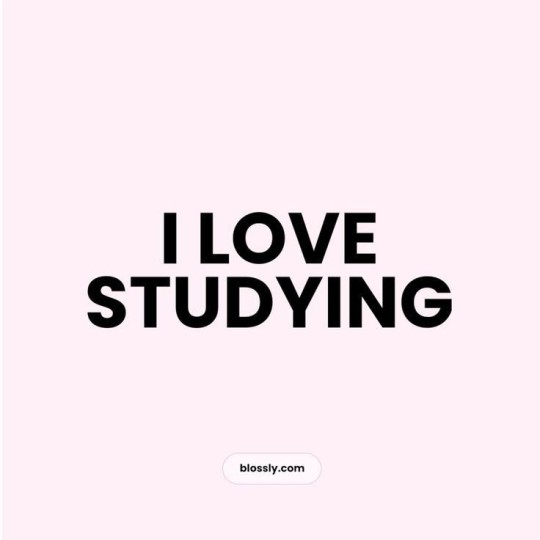
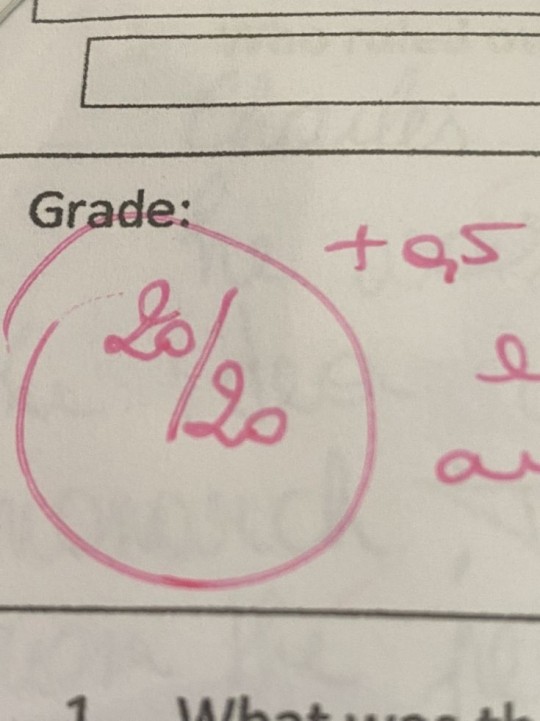
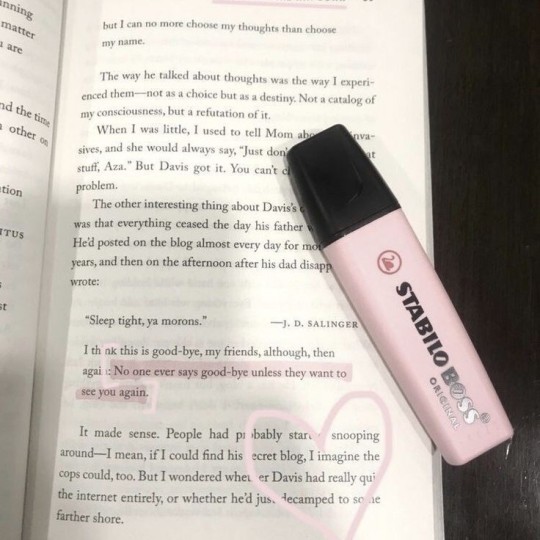
Language Resources 🎀
*that I currently use for studying Spanish. When I pick up studying Japanese again, I will make a list for that as well <3 I currently use a handful of resources for learning Spanish, and they've all proven very useful so far!
🩷 My Current Resources for Spanish
Busuu - hands down my favorite language learning app. So much better than Duolingo, in my opinion (especially for languages with a different alphabet/writing system). I bought the premium for a year, which will expire in Septmeber, but I'm debating renewing again because I love it so much.
LingQ - I like using this for reading in Spanish. It gives me different types of things to read about, and while I don't have premium, I do put all the words I don't know into flashcards on AnkiApp on my laptop and translate anything I don't know using SpanishDict.
SpanishDict - favorite translation/dictionary app. I know it has lessons you can use, tho I haven't tried it yet, but I really do love this app. It's super helpful when I'm making flashcards or writing random vocabulary notes.
Goodnotes - This is a general note-taking app, but I love it because it allows you to import and write on PDFs, and that's just perfect for me! I've downloaded free PDF short stories/children's stories in Spanish and made notes of words I don't know, and taken notes in the app too. Definitely my favorite notes app, ever.
Italki - I know this is a website, too, but I use the app. It lets you work with professional teachers/community tutors in your target language. You can have structured lessons or just use it for conversation practice. I did a trial lesson not too long ago and have an upcoming lesson booked out in about 5 days. You pay per lesson, so there is no subscription, and there are so many languages and teachers/tutors to choose from. I did a lot of research before choosing a teacher, and I'm very happy with my decision so far. Definitely useful if there's not native speakers near you or you're like me and not confident talking to people you know in your target language/their native language.
Quizlet/AnkiApp - I use AnkiApp more then quizlet, and the Anki I'm referring to is NOT the same way everyone else uses, but it's the flashcard app of preference at the moment. I tried the AnkiDroid app and hated it. But yeah, AnkiApp is useful for flashcards and I really like it. I have it on my Chromebook and my Ipad.
Netflix - I love watching shows in Spanish on Netflix so much. I am currently watching La Reina del Sur on it (used to watch that sporadically in the past at a friend's house) and plan on watching some other shows, including Elite.
Spotify - I enjoy listening to Spanish music and podcasts right now. The music is more of an entertaining/enjoyable fork of audio input, and the podcasts help me get a feel for speaking and pronunciation and I choose podcasts that speak on topics of interest tk help with vocabulary in those areas I'd like to be able to speak about.
Textbooks - I have 2 PDF textbooks, Gramatica de Uso del Español: A1-B2 and Gramatica de Uso del Español: B1-B2. I've heard these are great for learning Spanish (and they're both only written in Spanish, like there's no English in them) and plan on using them once I figure out how to take good and useful textbook notes! I definitely need to improve on my grammar.
Those are all my current Spanish resources! I'd definitely say my current level is like a high A1 right now, nearing A2, but I have just a little bit of work to do before I get there. These resources are definitely gonna help, tho!
#studyblr#study motivation#it girl#langblr#spanish langblr#study tips#language goals#that girl#langblog#language resources#foreign languages#language learning#language#langblr community#learn spanish#language learning goals#language studyblr#college studyblr#study blog#studying#language study tips#college student#student life#university student#language student#spanish#language learning tips#spanish studyblr#spanish language#study community
298 notes
·
View notes